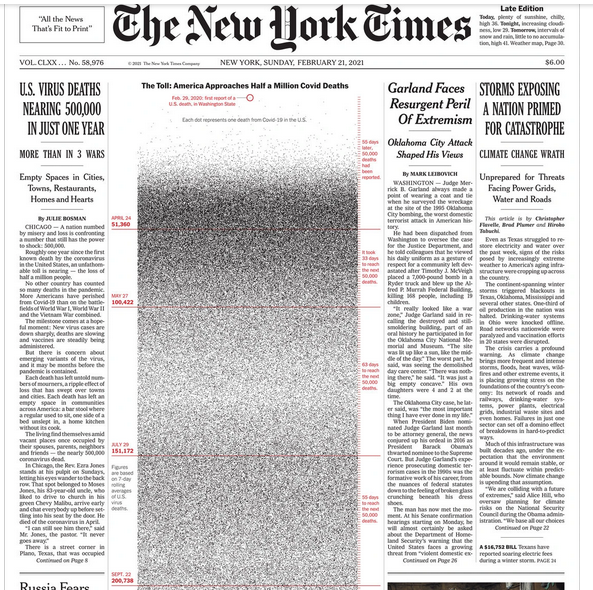Here’s some alarming news on Covid which grows exponentially and evidence of more and more variants that are creating problems as well.
Strategy perhaps - Vaccine the most vulnerable now…and hope that some combo of vaccines will ward off these variants some more vicious than others.
LONDON, Feb 4 (Reuters) - The world faces around 4,000 variants of the virus that causes COVID-19, prompting a race to improve vaccines, Britain said on Thursday, as researchers began to explore mixing doses of the Pfizer and AstraZeneca shots in a world first.
Thousands of variants have been documented as the virus mutates, including the so-called British, South African and Brazilian variants which appear to spread more swiftly than others.
British Vaccine Deployment Minister Nadhim Zahawi said it was very unlikely that the current vaccines would not work against the new variants.
“Its very unlikely that the current vaccine won’t be effective on the variants whether in Kent or other variants especially when it comes to severe illness and hospitalisation,” Zahawi told Sky News.
“All manufacturers, Pfizer-BioNTech, Moderna, Oxford-AstraZeneca and others, are looking at how they can improve their vaccine to make sure that we are ready for any variant - there are about 4,000 variants around the world of COVID now.”
VACCINE RACE
The novel coronavirus - known as SARS-CoV-2 - has killed 2.268 million people worldwide since it emerged in China in late 2019, according to Johns Hopkins University of Medicine.
Israel is currently far ahead of the rest of the world on vaccinations per head of population, followed by the United Arab Emirates, the United Kingdom, Bahrain, the United States and then Spain, Italy and Germany.
Britain on Thursday launched a trial to assess the immune responses generated if doses of the vaccines from Pfizer and AstraZeneca are combined in a two-shot schedule. Initial data on immune responses is expected to be generated around June.
The trial will examine the immune responses of an initial dose of Pfizer vaccine followed by a booster of AstraZeneca’s, as well as vice versa, with intervals of four and 12 weeks.
The trial will be the first of its kind to combine a mRNA shot - the one developed by Pfizer and BioNtech - and a adenovirus viral vector vaccine of the type developed by Oxford University and AstraZeneca. AstraZeneca’s shot is separately being trialled in combination with another viral vector vaccine, Russia’s Sputnik V.
The British researchers behind the trial said data on vaccinating people with the two different types of vaccines could help understanding of whether shots can be rolled out with greater flexibility around the world, and might even increase immune responses.

